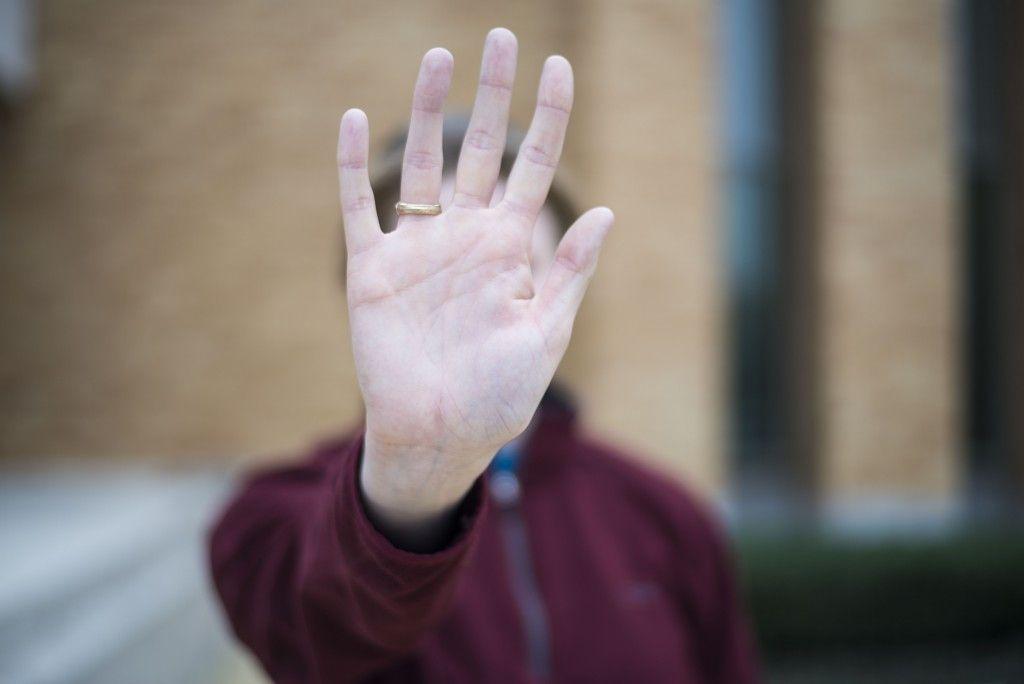From blue bruises around the neck to constantly avoiding friends on campus, there are a variety of warning signs survivors of sexual assault may exhibit. If you believe someone may have been sexually assaulted, here are a few signs to look out for and ways to access resources.
Physical Signs: Although easier to identify, survivors of sexual assault may try to hide unexplained bruises, scars or any other evidence on the body, specifically in the genital or anal area, which show they have been sexually abused. This can cause survivors to be cautious about what they wear and become insecure about their personal appearance.
Isolation: Sudden withdraw from social activity with friends and family is one of the biggest signs of sexual abuse, and can eventually lead to depression and anxiety. According to the National Institutes of Health, sexual abuse can contribute to elevated rates of depression, anxiety and other disorders, especially among females. Other signs of isolation include total dependence on the perpetrator, who could also be responsible for controlling the survivor, keeping them away from family and friends. You may also notice your friend avoiding the location where the assault occurred.
Substance Abuse: Survivors of sexual assault may try to cope with their situation by abusing alcohol or other drugs to help “take the pain away” for a period of time. Substance abuse can also lead to depression and anxiety, as well as sleep disturbances or nightmares, causing the survivor to have trouble sleeping.
Suicide Attempts: In a 2017 study, the National Institutes of Health found teens who experience sexual or dating violence, especially males, are more likely to commit suicide. For some survivors, trying to cope with a traumatic experience can be too much for them. It’s important to check on your friends, ask them how they are feeling and encourage them to seek professional help about any suicidal thoughts.
What Should I Do If I Notice Some Of These Signs?
If you think your friend has been sexually assaulted, consistently check on them. You should try to have welcoming, judgement-free conversations with your friend, so they won’t feel pressured to share details about the situation until they are ready. If you witness someone being sexually abused or assaulted, call 911 immediately.
What If My Friend Doesn’t Want To File A Report?
The best thing you can do for your friend who has been sexually assaulted but doesn’t want to file a report is to assist them in seeking help. Go with your friend to a sexual assault resource center or a sexual assault victims unit at your local police station to get counseling services and learn more about the reporting process.
Resources For Sexual Assault Survivors In Bryan-College Station Include:
•Sexual Assault Resource Center 24-hour hotline: (979) 731-1000
•Twin City Missions-Phoebe’s Home: (979) 775-5355 (24-hour emergency hotline)
•Student Assistance Services: 979) 845-3113
•University Police: (979) 845-2345
•College Station Police Victims Advocacy & Assistance Program: (979) 764-5004
•National Sexual Assault Hotline: (1-800) 656-4673
•College Station Medical Center: (979) 764-5100, 1604 Rock Prairie Road, College Station, Texas
•St. Joseph’s Hospital: (979) 776-3777, 2801 Franciscan Drive, Bryan, Texas
•For more resources visit: http://studentlife.tamu.edu/sas.resourceguide
Know the signs of sexual abuse
April 15, 2018
0
Donate to The Battalion
$1765
$5000
Contributed
Our Goal
Your donation will support the student journalists of Texas A&M University - College Station. Your contribution will allow us to purchase equipment and cover our annual website hosting costs, in addition to paying freelance staffers for their work, travel costs for coverage and more!
More to Discover










